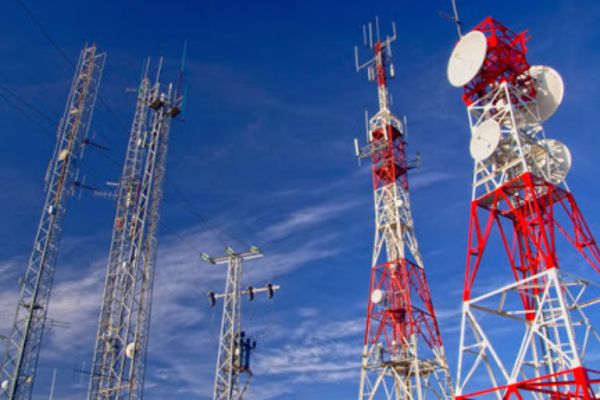What are the Rights and Obligations of Telecommunications Enterprises from July 1, 2024, According to the Latest Regulations?
What are the rights and obligations of a telecommunications enterprise?
Based on the provisions of Article 13 of the Telecommunications Law 2023, telecommunications enterprises have the following rights and obligations:
(1) For enterprises providing services without network infrastructure:
Rights:
- Construct, install, and own telecommunications equipment systems and transmission lines within the premises and public service points to provide telecommunications services to telecommunications service users;
- Lease transmission lines to connect telecommunications equipment systems, its premises, public service points with each other and with the public telecommunications network of other telecommunications enterprises;
- Lease transmission lines or purchase traffic, telecommunications services from other telecommunications enterprises to resell to telecommunications service users;
- Sublease telecommunications infrastructure that it has leased if agreed by the telecommunications enterprise leasing the infrastructure;
- Allocate telecommunications resources as per the provisions of this Law on telecommunications resource management;
- Research and develop, pilot new technologies, new models in telecommunications activities;
- Other rights as prescribed by the Enterprise Law and other relevant legal provisions.
Obligations:
- Financially contribute to the Vietnam Public-Utility Telecommunication Service Fund as prescribed by law;
- Be responsible for service quality according to registered or announced standards; ensure the accuracy, completeness, and correctness of service prices according to the service provision and usage contract;
- Be subject to the control of competent state agencies and comply with regulations on ensuring the safety of telecommunications infrastructure and information security;
- Report periodically or unexpectedly on telecommunications activities of the enterprise as prescribed by the Minister of Information and Communications; be responsible for the accuracy, and promptness of the report’s content and data;
- Take measures to block connections, Internet addresses, domain names, and other measures for telecommunications equipment systems, telecommunications services, telecommunications application services used to carry out acts specified in Clause 1 Article 9 of the Telecommunications Law 2023 upon the written request of the competent state agencies as prescribed by law;
- Prepare technical connectivity plans to serve data reporting by electronic means to meet the requirements of state management of telecommunications as prescribed by the Minister of Information and Communications;
- Implement the requests of competent state agencies on mobilizing part or the entire telecommunications infrastructure, telecommunications services in emergencies following the provisions of the law on national defense, national security, emergency situations;
- Ensure that telecommunications subscribers can retain their telecommunications numbers when switching telecommunications service providers within the same type of telecommunications service;
- Provide services to telecommunications service users whose subscriber information is complete and matches the information on the presented identification documents when signing the contract as prescribed by law;
- Authenticate, store, use subscriber information and handle SIMs with incomplete or inaccurate subscriber information;
- Prevent and block messages and calls that violate the law as prescribed by the Government of Vietnam;
- Stop providing telecommunication services to telecommunications subscribers who violate telecommunications law;
- Other obligations as prescribed by the Enterprise Law 2020 and other relevant legal provisions.
(2) Enterprises providing services with network infrastructure:
Rights:
- The same rights as enterprises providing services without network infrastructure
- Preferential use of space, ground, underground, riverbed, seabed, land used for public purposes to build telecommunications infrastructure according to planning, standards, technical regulations, and related legal provisions;
- Lease telecommunications infrastructure to other telecommunications enterprises;
- Participate in providing public-utility telecommunications services.
Obligations:
- The same obligations as enterprises providing services without network infrastructure
- Lease passive telecommunications infrastructure to other telecommunications enterprises when it is in line with the passive telecommunications infrastructure planning and is economically and technically feasible;
- Recover, dismantle telecommunications works that are under their ownership and management that are dangerous or do not ensure safety for exploitation and use according to the provisions of the construction law;
- Underground and reorganize telecommunications cable routes.
What are the forms of telecommunications business?
Based on Article 10 of the Telecommunications Law 2023, the forms of telecommunications business are as follows:
- Telecommunications service business is the activity of investing in setting up a public telecommunications network, providing telecommunications services for profit;
- Telecommunication goods business is the activity of investing in the production, exchange, purchase, sale, and leasing of telecommunications goods for profit.

What are the rights and obligations of a telecommunications enterprise from July 01, 2024, according to the latest regulations? (Image from the Internet)
What principles are followed in the program to support the provision and use of public-utility telecommunications services?
According to Article 4 of Circular 14/2022/TT-BTTTT, the principles for the program to support the provision and use of public-utility telecommunications services are as follows:
Implementation Principles
1. The program to support the provision and use of public-utility telecommunications services follows a priority order and matches the program's funding source.
2. Support for the use of public-utility telecommunications services does not overlap with other programs, schemes, and projects.
3. Ensure transparency and democracy regarding the beneficiaries and the support level.
4. Ensure the role of inspection and supervision by relevant agencies, organizations, and the public.
Thus, according to the above provisions, the program to support the provision and use of public-utility telecommunications services is implemented according to the principles:
- Support the provision and use of public-utility telecommunications services in priority order and in line with the program's funding source.
- Support for the use of public-utility telecommunications services should not overlap with other programs, schemes, and projects.
- Ensure transparency and democracy regarding the beneficiaries and the support level.
- Ensure the role of inspection and supervision by relevant agencies, organizations, and the public.
The Telecommunications Law 2023 takes effect from July 01, 2024, except for the provisions in Clauses 3 and 4 of Article 72.
LawNet